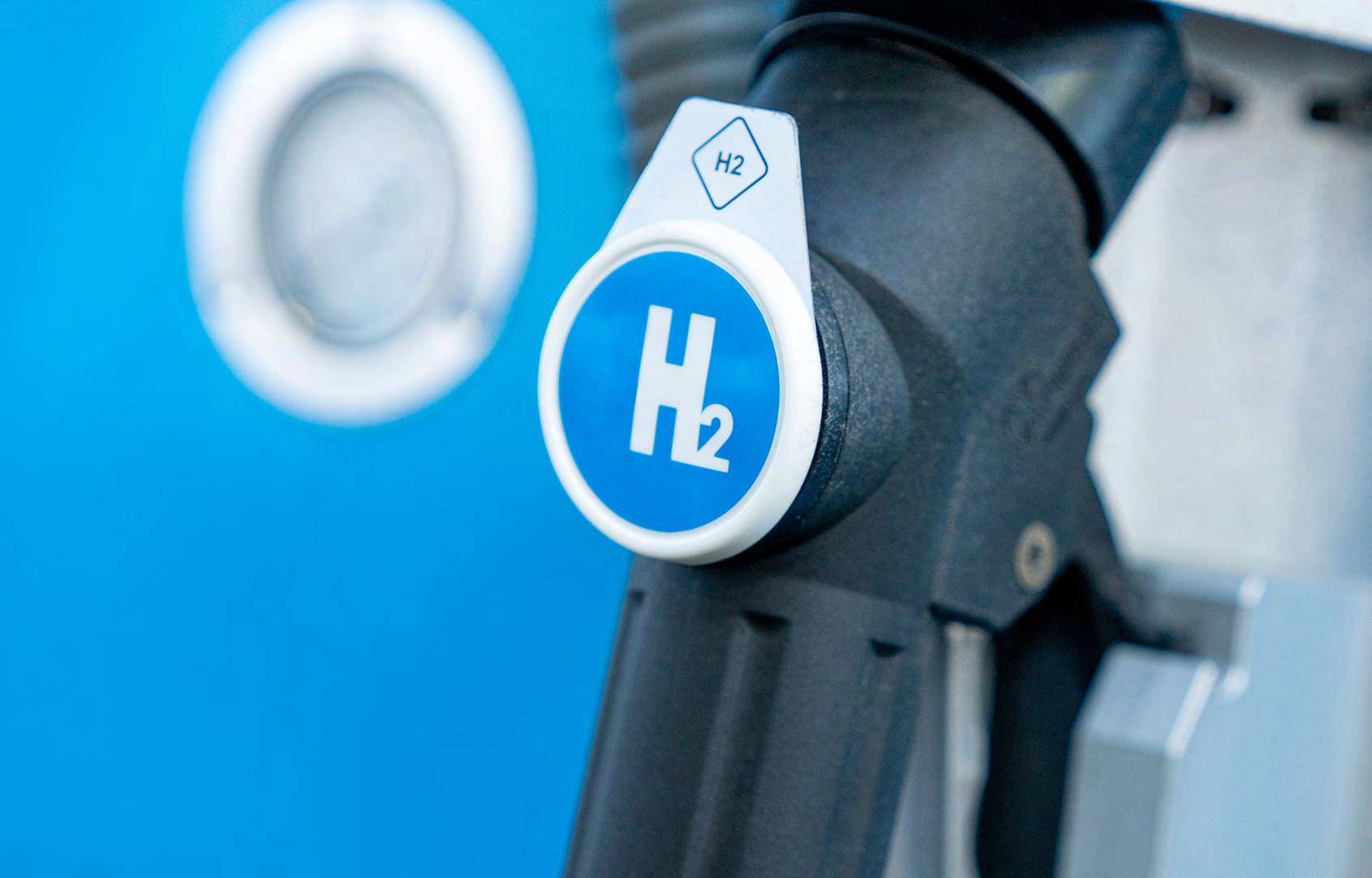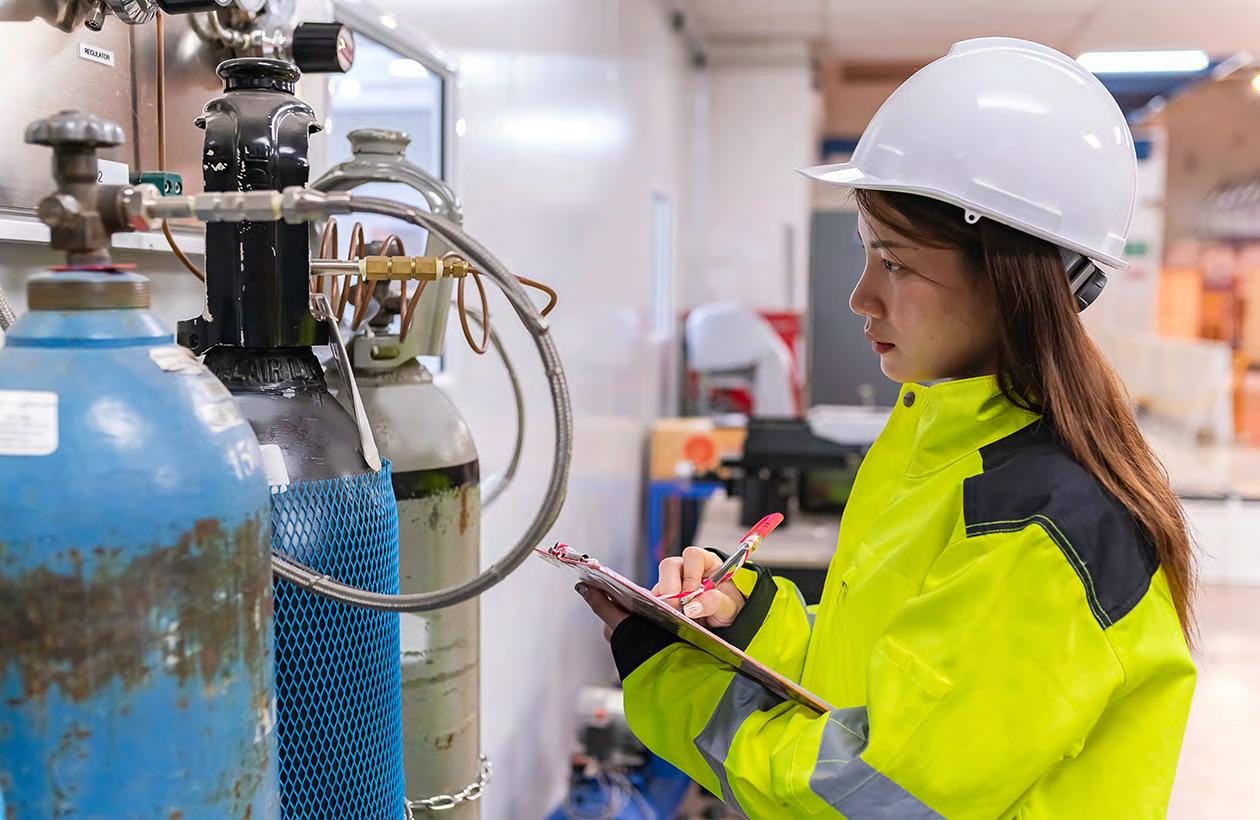
5 minute read
Thailand prepares for green hydrogen
Thomas Hundt
The first Thai demonstration plants are producing green hydrogen. Research and development are also underway.
Advertisement
Thailand has pledged to stop emitting net greenhouse gases by 2065. The Government's long-term strategy to reduce greenhouse gas emissions also includes the use of green hydrogen.
Hydrogen Club Shows Potential Applications
Stakeholders from the hydrogen sector joined together in 2020 to form a consortium, the Hydrogen Club, which holds webinars and symposia, and aims to build pilot plants. The club includes the national oil and gas company PTT, the state-owned power utility Electricity Generating Authority of Thailand (EGAT), the industrial gas producer Bangkok Industrial Gas, Toyota Motor Thailand, Toyota Daihatsu Engineering & Manufacturing, Mitsui Thailand. The club also includes the Department of Alternative Energy Development and Efficiency of the Ministry of Energy as well as the National Science and Technology Development Agency and the National Energy Technology Center (ENTEC) research institutes.
ENTEC is working on technologies for storing energy and has noticed an increasing interest in hydrogen and fuel cell technologies. The departments of process and energy engineering at Chulalongkorn and King Mongkut Universities in Bangkok are also conducting research on alternative energy, including hydrogen. The researchers have published several papers on hydrogen and fuel cell technology.
First Demonstration Projects Produce Green Hydrogen
EGAT opened the first pilot project in 2018 that produces and stores green hydrogen. The electrolyser for the Wind Hydrogen Hybrid Plant in Nakhon Ratchasima province was supplied by the Canadian company, Hydrogenics. A 300-kilowatt fuel cell supplies a centre run by EGAT there, where visitors can learn about renewable energies.
Enapter, a manufacturer of electrolysers, the German Society for International Cooperation, and the Energy Research and Development Institute at Chiang Mai University announced in February 2023 that they will establish the first green hydrogen training centre in South-East Asia.
The training centre will offer hands-on courses for project developers, system integrators and energy professionals, and they will be able to study green hydrogen at a demonstration plant. This is the family home of Sebastian-Justus Schmidt, the founder of Enapter. His award-winning Phi Suea house in Chiang Mai, northern Thailand, features a self-sufficient solar power system with a hydrogen battery storage system and a hydrogen fuel cell.
Hydrogen In The Transport Sector
PTT opened the country's first hydrogen filling station in November 2022. Two hydrogen vehicles from the Mirai series of Toyota are driven to the filling station in Pattaya for test purposes. Bangkok Industrial Gas supplies the hydrogen.
Thailand's CP Group and Toyota agreed in January 2023 to establish a joint venture that will produce hydrogen from animal waste. The hydrogen will power Toyota's lightweight fuel cell trucks, which CP plans to use as delivery vehicles.
Hydrogen Industry Exists
Thailand has been producing gray hydrogen from gas or as a byproduct of refining.
According to the implementation arm of the Technology Mechanism of the United Nations Framework Convention on Climate Climate Technology Centre and Network (CTCN), four companies produce hydrogen for commercial customers.

Bangkok Industrial Gas describes itself as the largest producer of hydrogen, which it sells to industrial users. Other producers of hydrogen include Linde and Air Liquide.
PTT Global Chemical (PTTGC) also has a Hydrogen Manufacturing Unit and PTTGC's olefin plants produce hydrogen on the side. The capacities and quantities produced are not known.
Hydrogen In Power Plants
EGAT announced in October 2022 that it would build a hydrogen-fuelled power plant. The 5-megawatt plant is to be built on the site of the Klong Luang gas-fired power plant in Pathum Thani province. Bloom Energy, a fuel cell manufacturer from the United States of America., was selected as the technology partner.
A subsidiary of EGAT, the Electricity Generating Public Company (EGCO), merged with the Japanese energy company JERA Asia in January 2023. JERA will provide solutions for generating electricity from hydrogen and ammonia. The alternative fuels are expected to complement gas and coal in power generation.
Global Power Synergy, part of the PTT Group, is also exploring the use of hydrogen and ammonia for power generation together with Avaada Energy from India. PTT also wants to lease two zero-emission oil tankers from the shipping company AET in Singapore that can use hydrogen as fuel.
PLANS, FUNDING AND REGULATIONS ARE STILL MISSING
So far, the activities are hardly coordinated. The CTCN is therefore commissioning a national hydrogen strategy and action plan. The authors are to write a paper that identifies opportunities for production, transport and use of green hydrogen. After all, Thailand has untapped renewable energy potential, large biomass resources, and would like to implement a sustainable circular bio-economy.
The Ministry of Energy has commissioned Chulalongkorn and Chiang Mai Universities to develop a roadmap for hydrogen development. The legal framework also still has to be created.
The German Federal Ministry of Economics and Climate Protection (BMWK) has been promoting green hydrogen in Thailand since 2022 as part of the International Hydrogen Ramp-up Programme (H2Uppp). Through the programme, knowledge and experience are shared and project ideas are identified.
Contact details:
Thomas Hundt
Director Thailand, Cambodia, Myanmar, Laos
GERMANY TRADE & INVEST www.gtai.com










